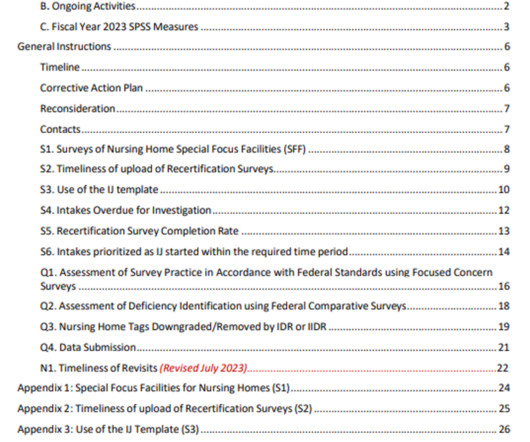CMS Revises Fiscal Year (FY) 2023 State Performance Standards System (SPSS) Guidance
Briggs Healthcare
AUGUST 14, 2023
The SPSS is aligned with CMS expectations for State Survey Agency performance in accordance with the §1864 Agreement and all related regulations and policies intended to protect and improve the health and safety of Americans such as the State Operations Manual, the Mission and Priority Document, survey procedure guides, and other relevant documents.
















Let's personalize your content